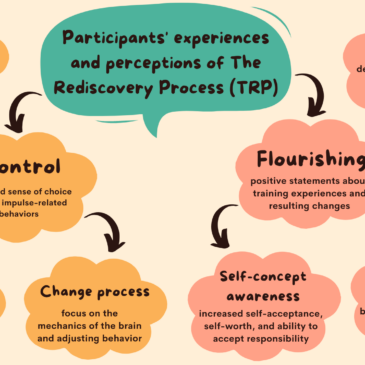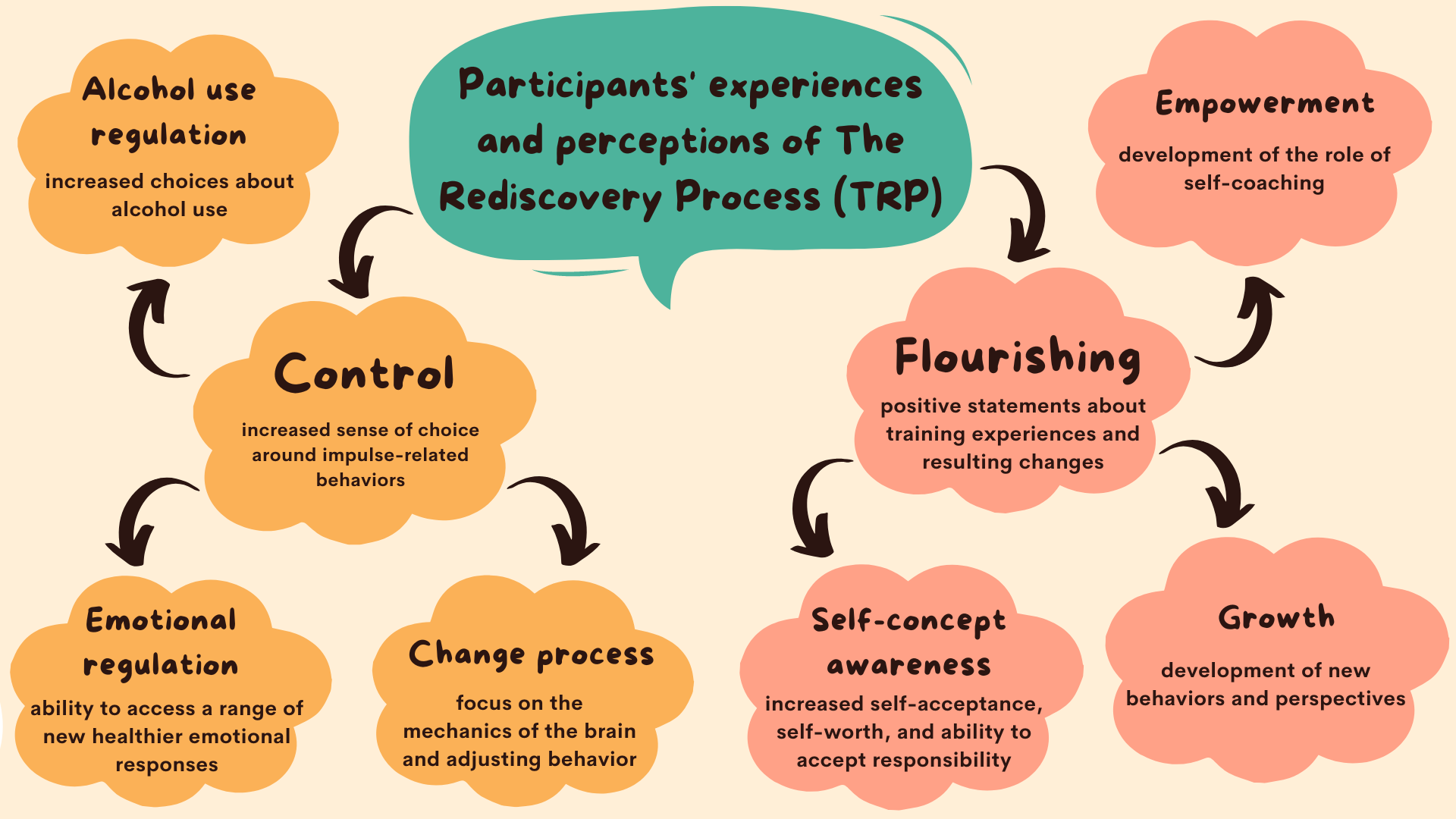Interventions for alcohol use disorder (AUD) have traditionally emphasized psychopathology-related issues such as reducing impulsivity, but positive psychology approaches are becoming more popular. A key concept in positive psychology is flourishing, which refers to a person’s social-psychological functioning and wellbeing. The Rediscovery Process (TRP) is a brief, recovery-focused approach for AUD that aims to address both impulsivity and flourishing. This week, The DRAM reviews a study by Phil Parker and colleagues that evaluated experiences and perceptions of TRP.
What was the research question?
Among people with alcohol use issues, does TRP increase awareness of both traditional psychopathology-focused issues (i.e., impulsivity) and positive psychology concepts (i.e., flourishing)?
What did the researchers do?
TRP was provided to 15 adults in England who were drinking at increased or higher risk of harm (i.e., self-reported drinking more than 14 units of alcohol per week). Participants’ time commitment was three consecutive days with a three-hour seminar in each. Afterwards, participants completed an online survey of open-ended questions about their experiences and perceptions of TRP. Researchers then conducted thematic analysis using an inductive data-driven approach.
What did they find?
Researchers identified two main themes: control and flourishing (see Figure). Within the theme of control, participants mentioned that TRP helped them feel an increased sense of choice around impulse-related behaviors, specifically regarding alcohol use regulation, emotional regulation, and the change process. Within the theme of flourishing, participants referenced positive experiences with TRP related to empowerment, growth, and self-concept awareness. Almost all participants reported experiencing important and lasting change in their alcohol use, wellbeing, self-esteem, and relationships with others as a result of TRP.
Figure. Main themes (i.e., control and flourishing) and subthemes (i.e., alcohol use regulation, emotional regulation, and change process; empowerment, growth, and self-concept awareness) identified from participants’ experiences and perceptions of TRP. Click image to enlarge.
Why do these findings matter?
Some counselors have concerns that adopting positive psychology approaches may lead to decreases in the availability of psychopathology-focused interventions. In this study, researchers observed both themes – control and flourishing – within TRP. This suggests that TRP can increase participant awareness of positive psychology concepts and psychopathology-focused issues at the same time. Participant responses also reflect the goals of TRP to reduce impulsivity and develop flourishing, suggesting that TRP can be effective in changing impulse-related behaviors and shifting one’s sense of self.
Every study has limitations. What are the limitations in this study?
The study had a small sample size recruited through convenience sampling. Also, the participants completed the survey between one and seven months after finishing TRP, so there may have been some recall bias.
For more information:
The National Institute on Alcohol Abuse and Alcoholism has tips and resources for people struggling with problem drinking. For additional drinking self-help tools, please visit our Addiction Resources page.
— Caitlyn Matykiewicz, MPH
What do you think? Please use the comment link below to provide feedback on this article.





